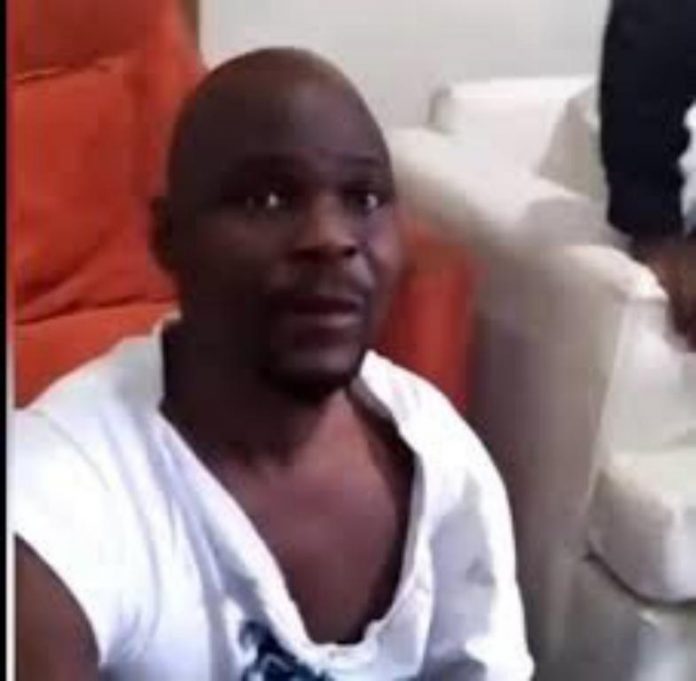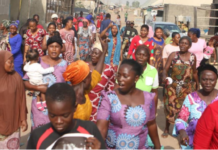The rampant incidence of sexual violence in the country is something that we should all be worried about and speak up against. The devastating impact on women and the girl-child can hardly be overemphasized. The ongoing case of molestation of a minor against the actor Olanrewaju Omiyinka shows how deep the problem is.
Omiyinka, better known by his stage name “Baba Ijesha,” was arrested in April. This was after the comedienne Damilola Adeola (aka Princess) accused him of sexually assaulting her foster daughter several times, from 2013.
Baba Ijesha was a regular visitor to Princess house that year. Princess was going through challenging times. She had recently come out of an acrimonious divorce. And on the heels of that, she had suffered complications after a surgical operation.
Baba Ijesha appeared as a friend whose visits were meant to help Princess go through this valley moment. As Princess would come to realize only this year, the actor was using that opportunity to serially rape the little girl who was just 7 years old at the time.
What the mother and the girl’s school noted was that she changed. She became withdrawn, and her grades went down. The cat would be let out of the bag when Omiyinka visited the house this year and described the underaged girl as his runaway wife in a seemingly joking manner.
The girl then confided in Princess that she had been defiled by Baba Ijesha years back. Princess and Iyabo Ojo, an actress in the Yoruba film industry, set a trap for him. And he was caught on tape violating the girl.
Omiyinka was arrested and could not be bailed for a few months because the judicial workers’ 2-month strike commenced about that time. He was later charged to court and released on bail in June.
Several Yoruba actors were at hand to take him from the police station when released on bail in May. And they have stood by him during his court appearances. This questionable “solidarity” is further promoted by playing down the appalling significance of sexual assault and attacks on those calling for justice for the victim.
One of the industry’s most prominent voices in this regard has been Chief Adedeji Aderemi (aka Olofa Ina). Speaking to the press earlier, he said there was no big deal about somebody having sex with another. He argued that no woman of note in the film industry could say she had not slept with men.
He added that this was one of the things that tied the film industry together. Olofa insisted that a few disgruntled people were setting up Baba Ijesha. For good measure, he rained curses on all these supposedly aggrieved persons.
The most vocal of Baba Ijesha’s supporters has been Yomi Fabiyi, who has been embroiled in a war of words with Iyabo Ojo on the matter.
Fabiyi immediately rose to the defense of Baba Ijesha. But, initially, at least, he presented this defense like Mark Anthony’s claim of coming to bury Caesar and not to praise him. Leveraging his “Break the Silence,” his little-known NGO, he put forward the otherwise legitimate human rights argument.
Baba Ijesha should be considered innocent until proven guilty, he said. People could be mistaken about what happened, he added, putting forward the experience of Baba Suwe, another actor who was accused of drug pushing but later acquitted by the court.
Rape, he further noted, was something that everyone in society should challenge. But he then tried to disparage the report of sexual assault. It was not clear if it was rape or child molestation. And while child molestation might be bad, it is not the same thing as rape.
When news of the accused Omiyinka first made the rounds, Fabiyi claimed that he was tortured to make the statement. There was no “if” or “maybe” on this, as was the case in his view with the victim’s claims. Instead, he organized a protest to demand the immediate release of Baba Ijesha.
It was within this context that Iyabo Ojo lashed out at Fabiyi. She is a close friend of Princess and had been privy to the video of Baba Ijesha’s most recent violation of the victim (which has now been presented to the court). And she did not mince words in saying she hopes Baba Ijesha and his likes rot in jail.
In a series of videos posted online, Iyabo also lambasted actors like Fabiyi supporting him and the industry that was not taking the matter seriously. She, who had been raped four times, the first time being when she was fourteen, spoke with the anger shared by millions of women who have faced this repulsive act.
In June, the Theatre Arts and Motion Pictures Practitioners Association of Nigeria (TAMPAN) response was to bar its members from engaging with Iyabo Ojo and Nkechi Blessings, another actress who spoke up for the victim.
While the two actresses are not registered with this film cartel, this makes it impossible for either of them to be contracted for Yoruba films since TAMPAN has a firm hold on this genre of “Nollywood.”
The association accepted that there might be a few rotten eggs in its ranks. It, however, stands against such social vices as rape, or so it wants us to believe. But while it was quick to ban its members from collaborating with the two actresses, it said nothing. It did nothing about Chief Adedeji and several other leading TAMPAN members such as Lege Miami and Bukky Black, who took to social media to ramp up support for Baba Ijesha and abuses on those calling out for justice for the victim.
Yomi Fabiyi also threw his hardly veiled hypocrisy to the winds by releasing a film titled Oko Iyabo in July. Using the actual names of persons involved in this despicable saga depicts Baba Ijesha as the victim of a plot cooked up by his close friends.
We have to establish an atmosphere where there will be zero tolerance for rape and sexual violence in all its ramifications.
The 2014 report of the National Survey on Violence Against Children in Nigeria showed that 1 in 4 females in the country experienced sexual violence in childhood. It further highlighted that 10,000 girls experienced sexual violence every day, and 84.0% of abused girls did not know where to seek help.
The situation has gotten worse over the years. An NOI Opinion Poll last year led to concern that reported sexual violence was on the rise in the middle of the pandemic. There might, however, be a silver lining within this dark cloud.
As a commentary on the survey report puts it: “One contestable reason for the apparent rise of sexual violence in Nigeria could be that sexual violence victims are becoming more encouraged to report such crimes.”
It is also not just that women are being encouraged to report cases of rape and all other forms of sexual assault. As Reuters reported in the second quarter of this year, Nigerian women are taking action.
These include women like Iyabo Ojo, Nkechi Blessing, and Tonto Dike, who stood up for what is right on the Baba Ijesha case, and Bukola Dakolo, whose exposé, two years ago, of how the COZA Church’s Gucci pastor, Biodun Fatoyinbo, raped her repeatedly as a teenager. Those speaking out also include countless women in our communities, workplaces, campuses, unions, media, and industry.
This is not just a fight for women. We all must stand up to stamp out sexual violence in all its forms. We must insist that our trade unions and other civil society organizations speak out and fight this menace.
The stance of TAMPAN and Baba Ijesha’s supporters undermines this vital fight for the rights and dignity of women and girls. The issues at stake go well beyond the law. In the first place, the law is skewed against women. Dakolo’s case, for example, was struck out, even though Fatoyinbo does indeed have a notorious history as a sexual predator.
It is also not enough to defend people accused of sexual violence because they appear like saints. Bukky Black’s position that “Baba Ijesha is not a womanizer” is nonsense. Some of the worst predators have the gentlest of sheepskin covering the wolves they are.
We must create safe spaces and an atmosphere for women who have suffered sexual violence to speak up. While more women have been emboldened, much more women still find it difficult to speak out. This, as a Foreign Policy report on Nigeria earlier in the year shows, is because “women who accuse men of sexual assault have faced backlash, high-profile defamation lawsuits, and even retaliatory police investigations.”
This sort of situation must stop. We can make it stop with our voices and action to stamp a zero-tolerance for sexual violence in our social fabric. We must make it impossible for sexual predators to have the idea that they can get away with sexual violence.
by Funmi ADEDAYO









